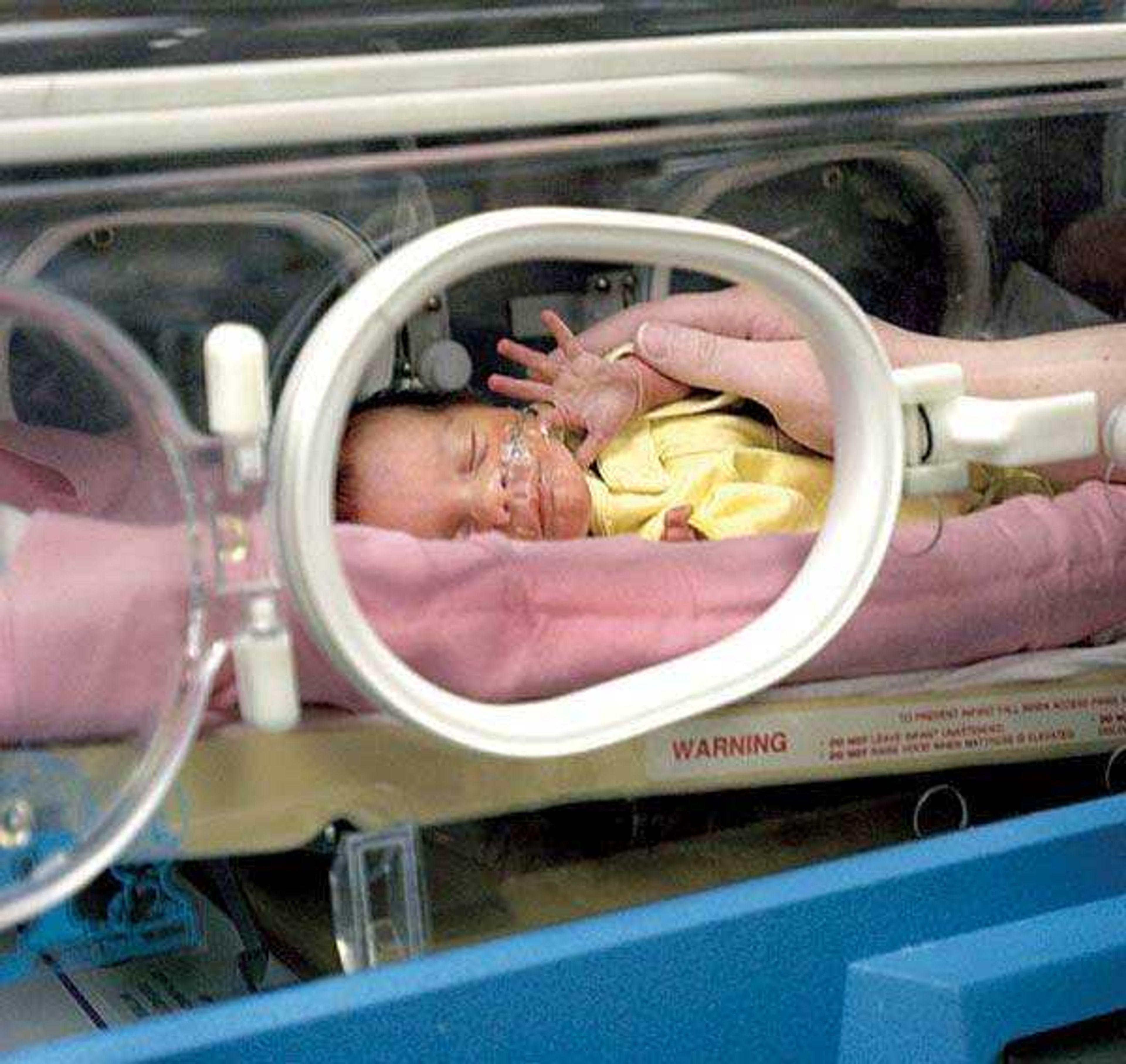Cape Girardeau's hospitals fill gap in perinatology needs
For some expectant mothers, seeing a specialized doctor for their pregnancy used to mean at least a two-hour car ride. Now it's just a ride down the street. For nearly a year, Cape Girardeau's two hospitals have been offering specialized care for women whose pregnancy may be considered high risk. Those make up about 10 percent of all pregnancies...
For some expectant mothers, seeing a specialized doctor for their pregnancy used to mean at least a two-hour car ride.
Now it's just a ride down the street.
For nearly a year, Cape Girardeau's two hospitals have been offering specialized care for women whose pregnancy may be considered high risk. Those make up about 10 percent of all pregnancies.
Saint Francis Medical Center's Cape Perinatology Services features a full-time maternal-fetal medicine center. Currently staffed by one doctor, the service hopes to add a second to accommodate the growing number of patients, which have totaled more than 300.
The Maternal-Fetal Medicine Service at Southeast Missouri Hospital offers a St. Charles, Mo.-based maternal-fetal specialist who works from the hospital once every two weeks, seeing eight to 10 patients each time.
This year, the program hopes to expand and include additional clinic days, according to hospital spokeswoman Sally Owen.
The maternal-fetal services at both hospitals have been available since June 2005. The centers specialize in high-risk pregnancies, which includes women with high blood pressure, diabetes, or who have experienced recurrent premature labor or are expecting a multiple birth.
The doctors at both hospital centers, trained obstetricians who received special training for maternal-fetal medicine, said the new centers were badly needed in the region.
"We can take care of almost all the services they would have had to drive for," Dr. William Holcomb said of the services now offered at Southeast Missouri Hospital.
Holcomb said he gets frequent comments from families who are happy they no longer have to travel to St. Charles to see him.
Holcomb recalled one patient from Poplar Bluff, Mo., who would drive to St. Charles for consultations. With his new office in Cape Girardeau, the woman has less distance to drive with her newest pregnancy.
"She was most pleased, and her husband was even more pleased," Holcomb said.
Some of the new features at both hospitals include a 4-D ultrasound machine which allows doctors to view 3-D images of the fetus while it is in motion. The fourth dimension is the machine's ability to show the fetus in motion.
This new technology enables doctors to detect birth defects of a fetus that may not show on a regular ultrasound, according to Dr. Michael S. Cardwell, the perinatologist at Saint Francis Medical Center.
Both doctors see themselves as consultants, someone to advise the patients' regular doctor in a complicated pregnancy. An at-risk mother is referred to them, and they provide a management plan.
"We're very helpful in terms of coordination of care for the patient," Holcomb said.
"We kind of sculptured the practice so we assist the patient's primary-care doctor," Cardwell said.
While Holcomb said the patients' regular doctors are capable of handling a delivery in an emergency situation, freeing him from having to travel to Cape Girardeau in the middle of the night, Cardwell said he has assisted in several at-risk deliveries.
The walls of Cardwell's waiting room in the Cape Perinatology Service are covered in pictures from newborns the doctor has delivered. Many of the photos include Cardwell.
Cardwell said he often is called in the middle of the night to assist with a difficult delivery or help stop an early labor.
Although Holcomb may not be present for every emergency that comes through, he is available 24 hours a day via his cell phone, which he said doctors have called numerous times for his advice.
Sometimes caring for an at-risk mother and her unborn child may not be entirely in the hands of the doctors. The mother's physical condition or habits affect her unborn child.
A common habit is smoking. Holcomb said he has encouraged mothers to quit for the sake of their child.
Other problems include an at-risk mother with diabetes or substance abuse problems who fails to follow doctors' recommendations, according to Cardwell. Those mothers could deliver a child prematurely with growth and organ problems, he said.
"It's hard enough to take care of a high-risk patient, but it's even more difficult if the patient is not following your prescribed treatment," Cardwell said.
The problems can be especially serious with mothers addicted to methamphetamine, Cardwell said.
"I have seen several patients in the past seven months that meth is destroying their life and has caused severe, irreversible injuries to their unborn babies. And that kind of gives you a sickening feeling," he said.
Sometimes, Cardwell said, all he can do is minimize the problems and hope for the best.
"Every visit on a patient who has a problem, we try to emphasize the necessity of adhering to the treatment regimen to improve not necessarily her health, but the baby's health," he said.
And with about 5,000 to 6,000 pregnancies every year and up to 1,000 of those considered high risk, there are plenty of unborn children to care for.
kmorrison@semissourian.com
335-6611, extension 127
Connect with the Southeast Missourian Newsroom:
For corrections to this story or other insights for the editor, click here. To submit a letter to the editor, click here. To learn about the Southeast Missourian’s AI Policy, click here.









